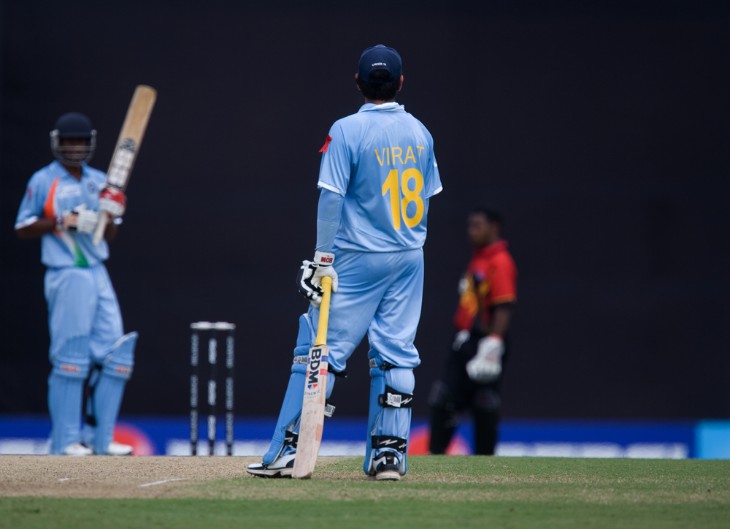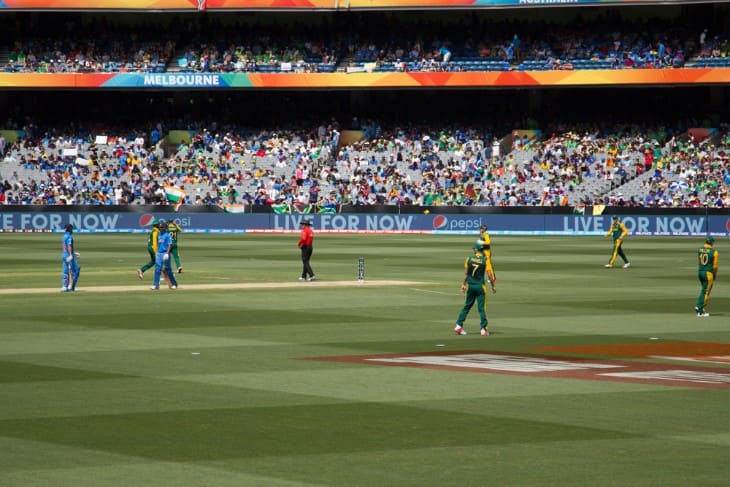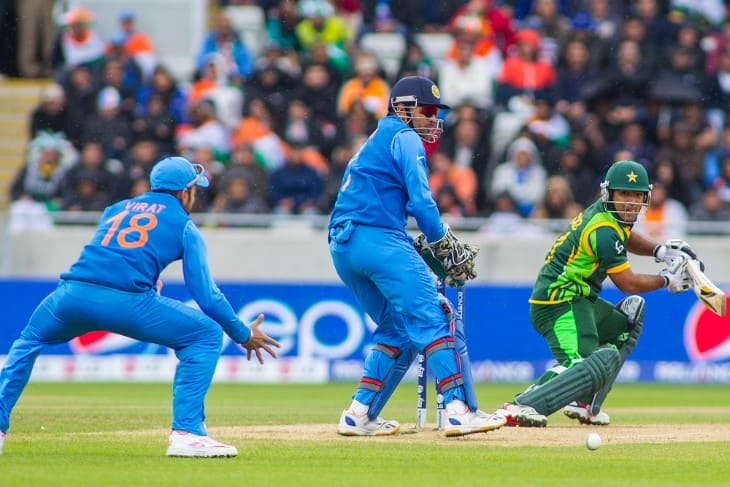- The Cricket World Cup: A Global Sporting Event
- When is the cricket world cup - The Frequency of the Tournament
- Host Countries and Venues
- The Format of the Cricket World Cup
- Qualification Process for Teams
- Iconic Moments and Memorable Matches
- Records and Statistics
- Evolution of the Cricket World Cup
- The Influence of the Cricket World Cup on the Sport
- Conclusion
The Cricket World Cup: A Global Sporting Event
The Cricket World Cup is undeniably one of the most eagerly anticipated events in the world of sports. It transcends borders, cultures, and languages, bringing together cricket enthusiasts from every corner of the planet. Played in the One Day International (ODI) format, this competition serves as a showcase of cricketing talent on the grandest stage. It is a testament to the universal appeal of the sport and its power to unite fans in their shared passion for the game.
When is the cricket world cup? The inaugural tournament took place in 1975 in England, marking the birth of what would become one of cricket's most prestigious traditions. Since then, this quadrennial extravaganza has witnessed numerous transformations and innovations, adapting to the changing landscape of the sport.
Over the years, the Cricket World Cup has seen expansions in the number of participating teams, changes in the format, and the emergence of legendary cricketers who have left an indelible mark on the competition's history. These developments have not only added to its allure but have also made it a symbol of cricket's continuous evolution and global influence. With each edition, the World Cup captivates the imagination of cricket enthusiasts worldwide, becoming a cherished part of their sporting calendar.
When is the cricket world cup - The Frequency of the Tournament
One of the burning questions on the minds of cricket aficionados is when the Cricket World Cup takes place. The tournament is held every four years, creating an air of anticipation and excitement that builds as the event draws near. This spacing between editions adds to the event's prestige, giving teams ample time to prepare, evolve, and showcase their skills on the global stage. The four-year gap also allows fans to cherish and relish each tournament, marking it as a momentous occasion in the world of sports.
Host Countries and Venues
Another intriguing aspect of the Cricket World Cup is the selection of host countries and the iconic venues that serve as the backdrop for this cricketing extravaganza. The tournament has graced a multitude of nations over the years, from the picturesque stadiums of England to the vibrant cricket grounds of the Indian subcontinent. Host countries are chosen through a rigorous bidding process, and the selection involves meticulous planning to ensure the event's success.
Each host nation imbues the World Cup with its unique flavour, blending cricketing passion with local culture and traditions. From the lush greens of Lord's Cricket Ground in London to the deafening roar of fans at the MCG in Melbourne, the tournament's venues become the theatre of cricketing dreams. They provide the canvas upon which history is painted, where records are shattered, and where new legends are born, leaving an indelible mark on the tournament's rich tapestry.

The Format of the Cricket World Cup
The World Cup format has evolved over the years, with the primary goal of striking a balance between competition and inclusivity. Teams compete in a series of One Day Internationals (ODIs), battling it out in a round-robin format followed by knockout stages.
In recent editions, the format has seen alterations, with the number of participating teams varying. These changes have been made to ensure that the competition remains competitive while allowing emerging cricketing nations the opportunity to showcase their talent on the world stage. The format's adaptability is a testament to the organisers' commitment to keeping the Cricket World Cup exciting and relevant for both players and fans.
Qualification Process for Teams
The qualification process for teams participating in the Cricket World Cup is a critical aspect of determining when the tournament takes place. National cricket teams must undergo a rigorous qualification process, often involving regional tournaments and rankings, to secure their spot in the World Cup.
This process ensures that only the best teams from around the world have the privilege of competing in the tournament. It also adds a layer of excitement to cricketing calendars worldwide, as teams strive to perform consistently and earn their place in this prestigious competition. The qualification process, closely monitored by cricketing bodies, adds to the anticipation surrounding when the Cricket World Cup will next grace the global cricketing stage.
Iconic Moments and Memorable Matches
From thrilling last-over finishes that had spectators on the edge of their seats to monumental centuries that defied the odds, the Cricket World Cup has been a stage where legends are born and dreams come true. Consider the heroics of Kapil Dev's unbeaten 175 in 1983, a remarkable innings that propelled India to an unlikely victory against the mighty West Indies, or the sheer tenacity of Shane Warne's 'Ball of the Century' in 1993, a delivery that left Mike Gatting bewildered. These instances, among many others, are not mere cricketing moments; they are the threads that weave the rich tapestry of the Cricket World Cup.
These iconic moments are not confined to individual brilliance; they often materialize as thrilling matches where teams engage in epic battles, pushing the boundaries of skill and determination. Think of the 1999 semi-final clash between Australia and South Africa, which ended in a dramatic tie, or the 2019 final, where England and New Zealand fought to a super-over finish that kept the cricketing world on tenterhooks.
These moments of brilliance and drama are not merely part of cricket's history; they are a part of our collective sporting memory. They are the fuel that keeps the passion for cricket burning bright, and they are the reason fans eagerly anticipate the next Cricket World Cup, knowing that it will undoubtedly produce new iconic moments and memorable matches that will be etched in the annals of cricketing folklore.
Records and Statistics
Cricket, like any other sport, thrives on records and statistics, and the Cricket World Cup is no exception. The tournament is a treasure trove of cricketing data, featuring records that span batting, bowling, fielding, and team achievements.
From the highest individual scores to the most wickets taken in a single tournament, these statistics provide a fascinating insight into the tournament's history. Cricket enthusiasts eagerly follow these records, and they often spark lively debates about who the greatest cricketers in World Cup history are. The records and statistics not only add a layer of intrigue to the tournament but also serve as a testament to the enduring legacy of the Cricket World Cup.

Evolution of the Cricket World Cup
The evolution of the Cricket World Cup is a journey through time, reflecting the changing dynamics of the sport and the world. Since its inception, the tournament has undergone significant transformations, adapting to meet the demands of both fans and players.
From the inaugural eight-team competition in 1975 to the expansion to 14 teams in later editions, the Cricket World Cup has sought to balance tradition with innovation. Changes in formats, rules, and technologies have contributed to the tournament's ability to stay relevant and captivating. The journey of the World Cup reflects cricket's ever-changing landscape and its determination to remain a premier sporting event.
The Influence of the Cricket World Cup on the Sport
The impact of the Cricket World Cup transcends the tournament itself, extending its influence to the sport of cricket as a whole. This influence encompasses various aspects, from the development of youth cricket to the growth of women's cricket.
The World Cup serves as an inspiration for aspiring cricketers and a catalyst for infrastructure development in cricketing nations. It has also played a pivotal role in promoting inclusivity and diversity within the sport. The influence of the World Cup reaches far and wide, ensuring that cricket continues to evolve and thrive. Understanding the extent of this influence is crucial when considering when the next Cricket World Cup will shape the sport and captivate fans around the world.
While the Cricket World Cup is a celebrated event, it has not been without its share of challenges and controversies. From scheduling conflicts to disputes over hosting rights, these issues have occasionally threatened to disrupt the tournament.
Looking ahead to when the Cricket World Cup will be held in the future, there are numerous questions and possibilities to consider. The tournament continues to evolve, with discussions about its format, expansion, and potential new host countries.
Cricket fans worldwide eagerly anticipate each edition of the World Cup, and its future promises to be filled with excitement and innovation. The tournament's ability to adapt to changing times and to remain a global sporting spectacle demonstrates its enduring appeal. As we speculate about when the next Cricket World Cup will take place, we can be sure that it will continue to be a cornerstone of international cricket and a source of pride for fans and players alike.
Conclusion
In conclusion, the Cricket World Cup stands as a pinnacle in the world of cricket, with its rich history, global appeal, and remarkable moments. It continues to evolve and shape the sport, captivating fans worldwide. As cricket enthusiasts eagerly anticipate the next tournament, one thing is certain – the Cricket World Cup will remain a cherished event in the world of sports.
For more information:


